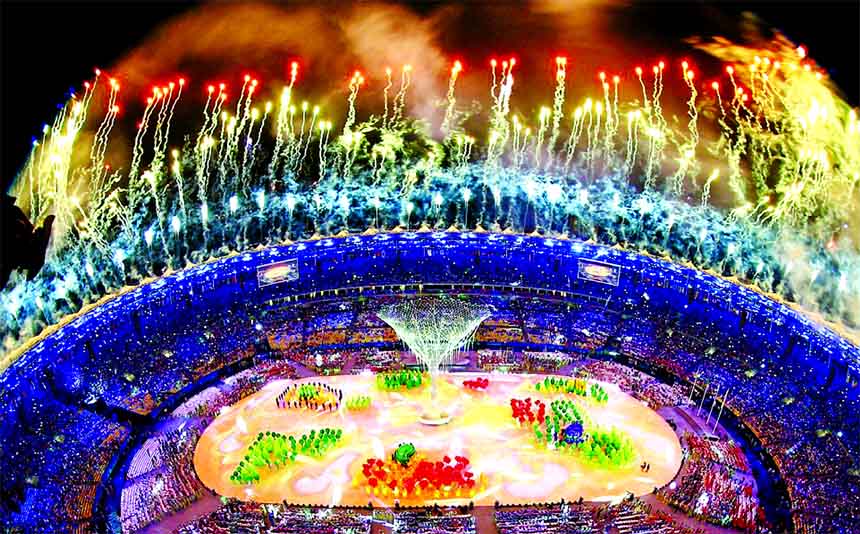
AP, Rio De Janeiro :
Shaking to samba and expressing a sense of longing with uniquely Brazilian words, Olympians and fans said goodbye to the Rio Games with one last big bash that was both revelatory and a sigh of relief.
The closing ceremony Sunday celebrated the 16-day spectacle that was the Rio Games, which combined numerous highlights with ugly and even bizarre episodes that sometimes overshadowed competition. Cariocas – as Rio’s residents are known – weren’t swayed by the issues that led up to these Olympics, and braved rain and strong winds on the final night to cap their moment in the worldwide spotlight.
While South America’s first Olympics are over, safely and with a grandiose finale, many problems remain. Still, Brazil showed Sunday it still definitely knows how to party.
“These were marvelous Olympic Games in the ‘marvelous city,'” said International Olympic Committee President Thomas Bach, playing off the “cidade maravilhosa” nickname of Brazil’s postcard city of inviting coastlines, year-round sun and lush tropical vegetation.
While the stadium erupted in applause at that declaration, a few minutes later there were boos of sadness when Bach announced: “I declare the Games of the XXXI Olympiad closed.”
The closing ceremony in iconic Maracana Stadium was also meant to take care of some business – formally signaling the transition to the 2020 Summer Olympics in Japan.
But Sunday’s party was all about Brazil, designed to be more low-key than the opening, which focused heavily on Rio.
The ceremony featured original footage of Alberto Santos Dumont, the man that Brazilians recognize as the inventor of the airplane. The theme, “Brazilians can do with their bare hands,” was a nod to the emerging economy of the world’s fifth most populous nation.
Dressed in colorful feathers, dozens of dancers formed in the shape of the arches of Lapa, a popular area of Rio akin to Roman ruins, then morphed to make the shape of iconic Sugarloaf before quickly changing again, this time to the official 2016 symbol.
Samba legend Martinho da Vila, whose tunes make their way into many popular telenovelas, sang “Carinhoso,” or “Affectionate.”
Olympians poured in under light rain, waving their flags while many shook their bodies to samba-infused pop that made the stadium feel like a Carnival parade. Britain’s athletes wore shoes with soles that lit up in changing colors of red, white and blue, while Tongan taekwondo athlete Pita Taufatofua danced onstage in a grass skirt as a DJ performed, reprising a moment that captured attention when he carried the flag for his country during the opening ceremony.
The show widened its lens to greater Brazil, a massive country with a land mass slightly larger than the continental United States. There was a tribute to cave paintings of some of the first inhabitants of the Americas, in Serra da Capivara, in Northeastern Brazil, today one of the nation’s poorest regions.
Spectators watched performers shake it to frevo, a frenetic dance that – if it’s even possible – makes high-octane samba seem like a staid ballroom affair. Holding small umbrellas, dancers jumped and marched while performing acrobatics.

